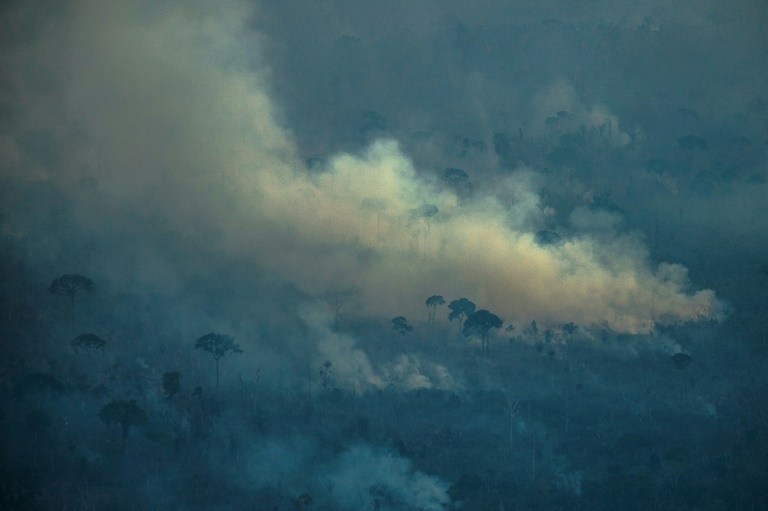China will on Monday launch a crucial biodiversity summit to build political momentum to halt and even reverse the destruction of nature by man.
As the human population climbs toward nine billion by mid-century, animals are being crowded, eaten, snared, poisoned, poached, hawked and hunted out of existence.
Forests have been burned to the ground to grow commercial crops, and ecosystems that sustain life on the planet ravaged.
The virtual opening of the COP15 summit will transfer leadership from Egypt, which presided over the last gathering in 2018, to China.
During the talks, Beijing will orchestrate high-level online meetings with ministers from scores of countries in a drive to build political momentum.
China — by far the world’s biggest emitter of carbon pollution that drives global warming and harms the environment — will also issue a “Kunming Declaration” that will set the tone for its leadership, observers say.
“This declaration, we hope, will further underline and recognise the importance of biodiversity for human health,” said Elizabeth Maruma Mrema, executive secretary of the Convention on Biological Diversity (CBD), a treaty ratified by 195 countries and the European Union.
“It will also recognise the importance of mainstreaming biodiversity in decision-making and will serve also as a tool to create the political momentum,” she told AFP.
Since gathering in person in Rome last year, delegates have negotiated across cyberspace.
– Urgent targets –
Next week’s online meet will be followed by in-person talks in Kunming from April 25 to May 8, with an intermediate session, also face-to-face, in Geneva in January.
The November COP26 climate summit in Glasgow, meanwhile, will seek to tame the increasingly devastating effects of global warming.
Discussions will focus on a negotiated draft text called the Post-2020 Global Biodiversity Framework.
Published in July, its stated goal is “living in harmony with nature” by 2050.
That “harmony” will be defined by mid-century goals with 2030 reality checks in the form of 21 “targets for urgent action” over the next decade.
Targets include declaring 30 percent of land and sea as protected areas, the end of plastic waste in the oceans, and sustainable management of agriculture, aquaculture and forestry.
Financial targets include boosting investment in biodiversity protection to $200 billion per year within a decade, while reducing subsidies for environmentally harmful industries by “at least US $500 billion per year”.
It asks that individual governments implement strategies and devise reporting methods to make it easier to measure progress.
The document insists that follow-up is crucial to ensure targets do not remain a list of empty promises.
– ‘Sad truth’ –
Sharp divisions remain.
France and Costa Rica are among a coalition of support for the initiative to declare 30 percent of oceans and lands protected areas before 2030.
But when scientists called for more ambitious protection of half of Earth’s biodiversity, Brazil and South Africa strongly opposed.
Other sources of tension surround financing, with developing nations asking rich countries to foot the bill for their ecological transitions.
These issues will be at the heart of negotiation sessions set to take place in Geneva in January 2022.
“It is concerning that these issues have not been dealt with sufficiently,” said Li Shuo, global policy advisor for Greenpeace China.
“The sad truth is countries simply don’t care about biodiversity in other countries as much as they do for emissions others pump into the air,” he told AFP, referring to the carbon pollution that drives global warming.
But while the protection of nature isn’t getting the kind of buzz the climate has been able to generate, biodiversity has gotten more visibility than it used to.
At the end of September Jeff Bezos and Mike Bloomberg joined other philanthropists in pledging $5 billion by 2030 for biodiversity restoration and conservation.











